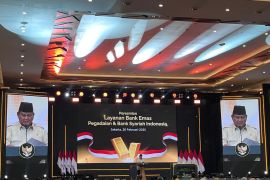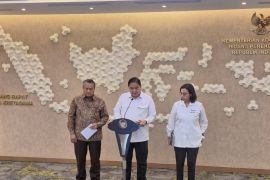"Our exports are declining now. We will amend (the rules), which will necessitate exporters to bring their foreign exchange earnings (to the country)," he remarked here on Friday.
The recent decline in the countrys foreign exchange reserves was inevitable as several companies had repaid their foreign debts, he noted.
"As usual, many companies repay their debts at the start or end of year, while at the same time, the government also settles its foreign transactions," he pointed out.
Bank Indonesia stated on February 5 that the countrys foreign exchange reserves in January 2016 fell by US$3.8 billion to US$102.1 billion from US$105.9 billion in December 2015.
"The development is the outcome of the countrys foreign exchange needs, including the requirement to repay the governments foreign debts, comprising the principal amount and interest on maturing global bonds," Director of the Communications Department of Bank Indonesia Arbonas Hutabarat noted in a statement released on February 5.
The foreign exchange reserves as of late January 2016 were sufficient to finance 7.5 months of imports, or 7.2 months of imports and government debt repayments, and were above the international adequacy standard of three months of imports, he remarked.
According to Bank Indonesia, the foreign exchange reserves were able to support the resilience of the external sector and ensure the countrys sustainable economic growth in future.
The countrys foreign exchange reserves at the end of December 2015 rose significantly by US$5.7 billion to US$105.9 billion from US$100.2 billion a month earlier.
(S012/INE)
Reported by Fransiska Ninditya
EDITED BY INE/H-YH
(T.S012/B/KR-BSR/B/H-YH)
Editor: Aditia Maruli Radja
Copyright © ANTARA 2016











